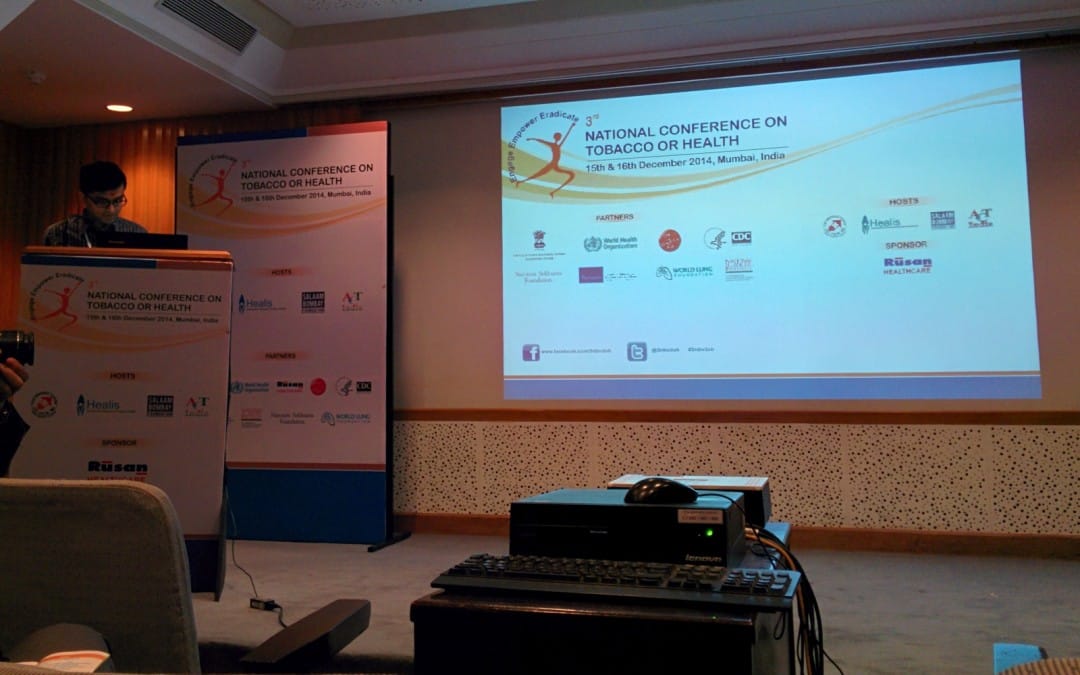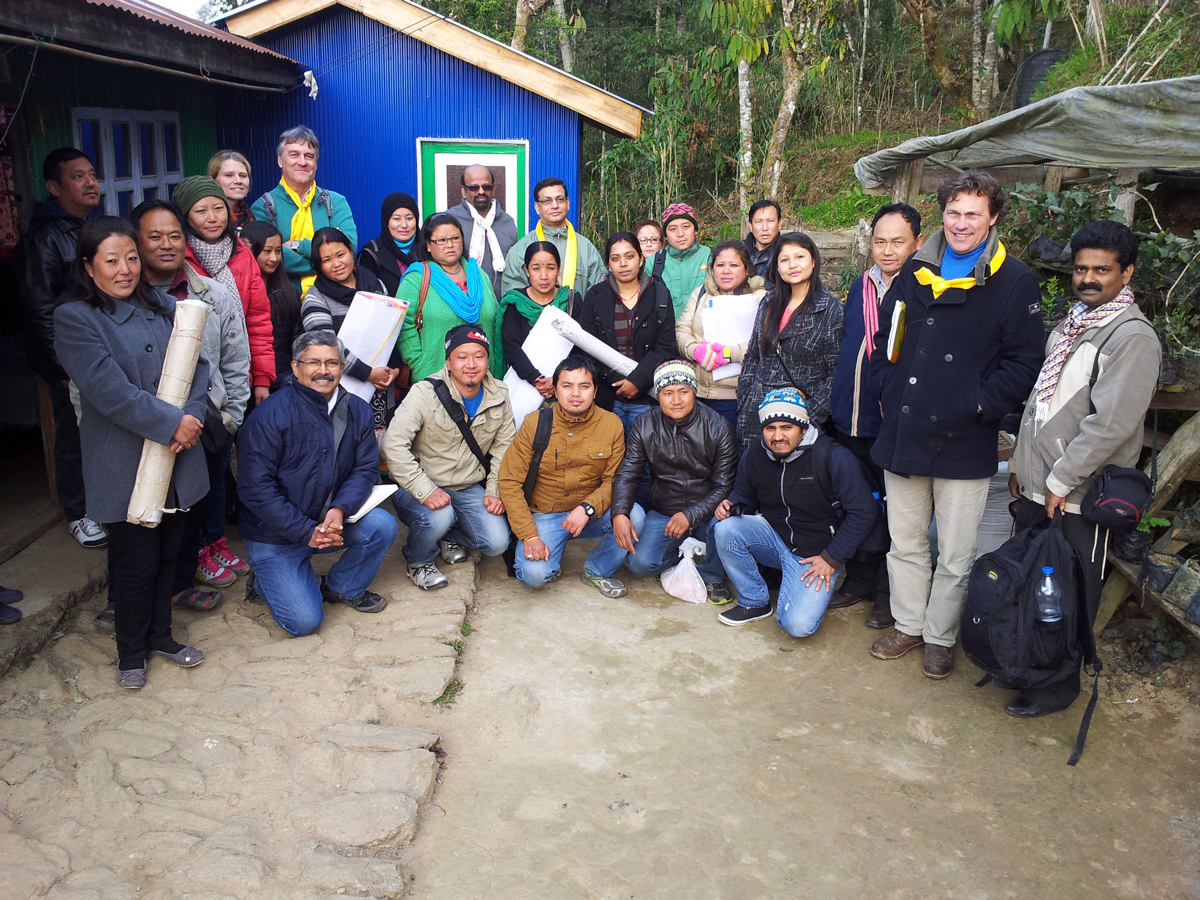by iphindia | Mar 24, 2015 | ATM, Blog, Latest Updates
This article originally appeared on BMJ Blogs on February 26, 2015 under the same title.
AYUSH—an acronym for Ayurveda, Yoga, Unani, Siddha, and Homeopathy—is a system of medicine that has been integrated into the Indian national healthcare delivery system to strengthen public health in rural India. In 2005, when the Indian government launched the national rural health mission (NRHM) to improve healthcare delivery especially for the rural population,integration of AYUSH was an important strategy that was adopted. This was done with the objective of offering treatment choice to people as well as a strategy to overcome the human resource shortage in the government health facilities. The planning and implementation of AYUSH differs across various states, depending upon the existing level of development of AYUSH services in the state and the development emphasis of the state.
Here I am sharing some of my reflections on the status of AYUSH medical officers who are posted in the government primary health centres. I have had opportunities to meet many AYUSH practitioners who are posted in government run primary healthcare centres during field visits for my research into access to medicines for the rural poor in Karnataka. As per the official mandates and guidelines, these practitioners are supposed to practice Indian systems of medicines at the primary healthcare centres and they are also supposed to manage different national programmes. But often what happens in practice is different. Due to the shortage of trained MBBS doctors, they are posted to primary health centres and are expected to manage outpatient and administrative responsibilities. The AYUSH medicines supplied to the primary healthcare centres are very minimal, most of the time there is no stock of any AYUSH medicines and they are forced to prescribe allopathic medicines due to the patients’s demands as well as the pressure from the district and sub district health authorities which is often “off the record.” Several times these AYUSH doctors have asked the health authorities to allow them to prescribe basic allopathic medicines in more legitimate manner, but the authorities keep rejecting their plea. While narrating his plight, one of the doctors sighed and said “we are forced to do quackery in our health system,” referring to the fact that he is being forced to prescribe and practice the allopathic system of medicine (which is not his area of expertise).
It is an irony when the official mandate expects these doctors to manage the patient load and implement national health programmes, but they do not have the legitimacy to prescribe the allopathic system of medicines which are often very basic and used to manage minor elements. The NRHM is almost a decade old and the problem still has not been addressed.
Allowing the AYUSH practitioners to undergo a bridge course to better orient them to allopathic system of medicine and then legitimize them to use at least some basic allopathic drugs would legitimize their position in PHCs. It is pity that in a country where a chemist can sell allopathic drugs over the counter boldly without any prescriptions, AYUSH doctors are finding themselves unsafe to prescribe allopathic medicines in existing health system.
Written by – Dr.Praveenkumar Aivalli, Research Officer at Institute of Public Health Bengaluru.

by iphindia | Mar 17, 2015 | Blog, Latest Updates
Dr. N. Devadasan, Director and Faculty of IPH has been nominated to the MoHFW’s Core Group to redesign the RSBY.


by iphindia | Feb 16, 2015 | Blog, Latest Updates, PhD, Research

IPH has been working with Tumkur district in trying to strengthen various components of the district health system. One of the key interventions here has been to work with private practitioners in the district to better understand their integration into the National Tuberculosis control programme.This project being led by our Faculty and PhD Fellow, Vijayashree Yellappa. Earlier this month, her proposal was one of 26 proposals selected (from 460 submissions!) for the WHO-TDR IMPACT grants, a global grant-making mechanism to support innovative research on neglected priority needs for disease control. WHO-TDR is a special Programme of the WHO for research and training in Tropical Diseases and sponsored by UNICEF, the UNDP, the World Bank and WHO.
See link to the grant announcement on the WHO site : http://www.who.int/tdr/news/2015/impact-grant/en/

by iphindia | Feb 6, 2015 | Advocacy, Blog, Latest Updates
Few members from the tobacco control team participated in the 3rd National conference on tobacco or Health held at Mumbai on the 15th and 16th of December. We had three oral presentation and one poster presentation depicting the on going activities and learning from Karnataka. In the conference Upendra Bhojani presented the learning from success stories in states of India and also a poster on the health in all policies (HIAP) approach in tobacco control Neethi Rao presented the findings of an exploratory study on conflicts of interest in tobacco control in India Pragati Hebbar presented the insights of moving from policy to practice with examples of implementing tobacco control law in Karnataka.

by iphindia | Jan 27, 2015 | Blog, Latest Updates

It was one of my routine visits to a PHC in rural Karnataka where I facilitate the patient counseling sessions for people with diabetes and hypertension. This PHC is 45km from the district head quarters and covers about 18,000 people. It was a busy day and the medical officer was attending to the patients. I silently headed towards the counseling room; there were about five patients waiting for me. I started my counseling session and explained to the patients about their disease, the importance of regular treatment and lifestyle modification.
Among them was a patient, who was around 45 to 50 years old. He showed me a few prescription slips written by different doctors and from that I figured out that his blood glucose levels were quite high in the last few months. I decided to have an individual conversation with him. When I asked him why his blood glucose levels were not in control, he started narrating his story.
He belongs to the same village; his house is located around 1 km from the PHC. He runs a tea shop for his daily living; he has a small family for which he is the sole bread winner. He comes to the PHC for his regular checkup, but is prescribed medicines from the private pharmacy, which he cannot afford. He said apologetically that he is not able to take medications regularly and that is the reason for his fluctuating blood glucose levels. He is unable to spend money for his regular medicine expenses, so he used to consume medicines whenever he has money. He has completely stopped taking aspirin due to the high medicine cost (each medicine costs 7 rupees) in the last few weeks. When I reminded him that he needs to take care of his health first, his response was, “if I spend the money on the medicine, I would not be able to meet the household expenses, pay my children’s school fees, or celebrate any festival. And for me happiness of my family counts the most”.
After a few minutes of our conversation, he asked me if I could do something so that he can get the same medicine in the PHC at free of cost. I listened carefully and assured him that I will try to speak to the medical officer see if anything can be done. After I finished my conversation with him, I went to the medical officer had a discussion about that patient and also enquired why is he not getting benefited from the PHC. The medical officer told me that the PHC does not have the stock of that particular medicine which he requires; his sugar levels are constantly high and are not getting controlled by the PHC medicines so he was given an outside prescription.
It’s not justa story of one patient whom I came across; there are many more who are suffering in the same way. During my routine visits, I have come across many such patients who have discontinued medicines due to financial difficulties. For people with chronic conditions like diabetes it is all the more difficult, as they need to take lifelong medication. This raises a question in my mind, what is our health system doing to help these poor patients? We hear about many programmes and schemes targeting the poor, but how far these programmes have actually reached out to the poor? I don’t have a solution to offer either, but unless we address these issues, we will not have an answer to the increasing burden and mortality of chronic diseases.
Santosh M Sogal
Research officer
Institute of Public Health
Bangalore, Karnataka










